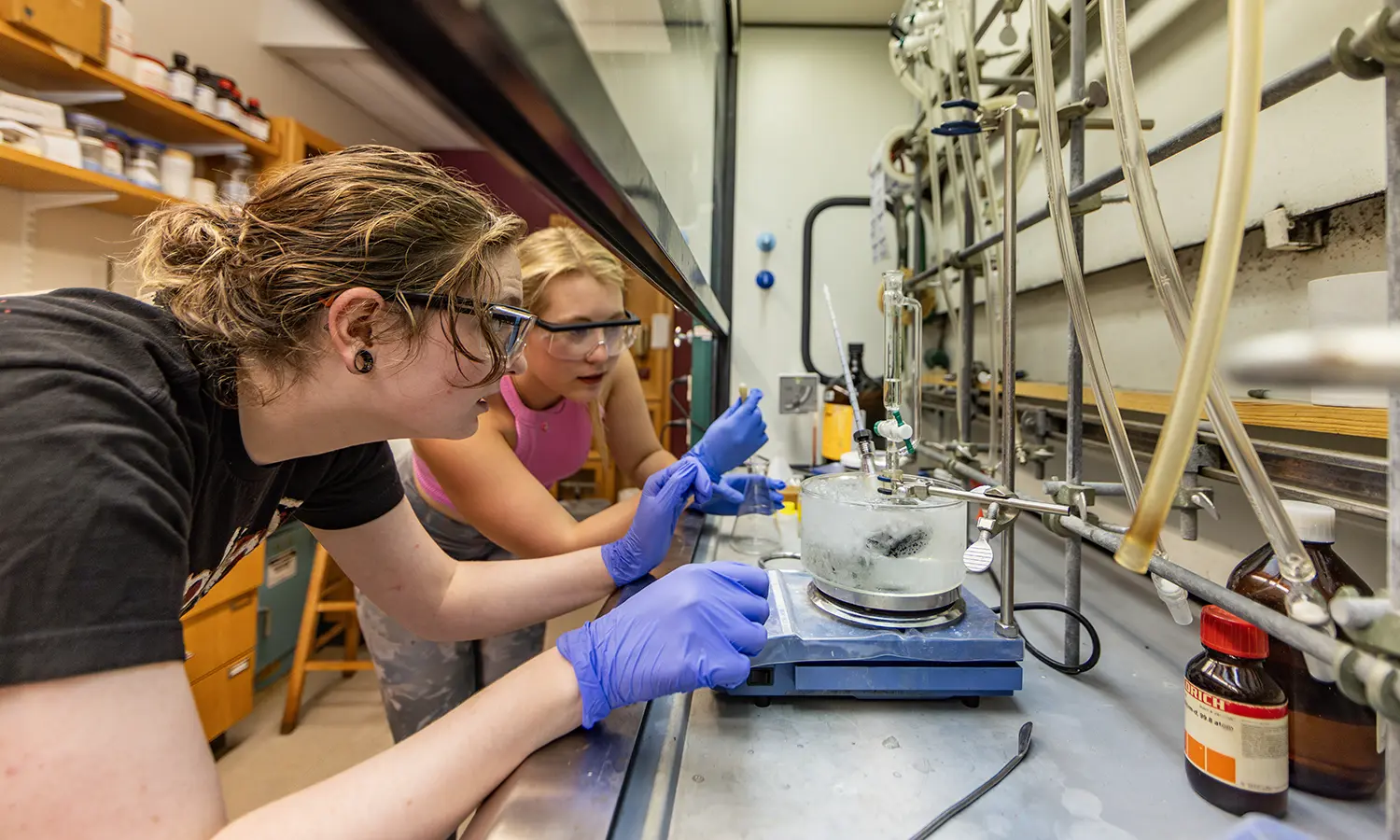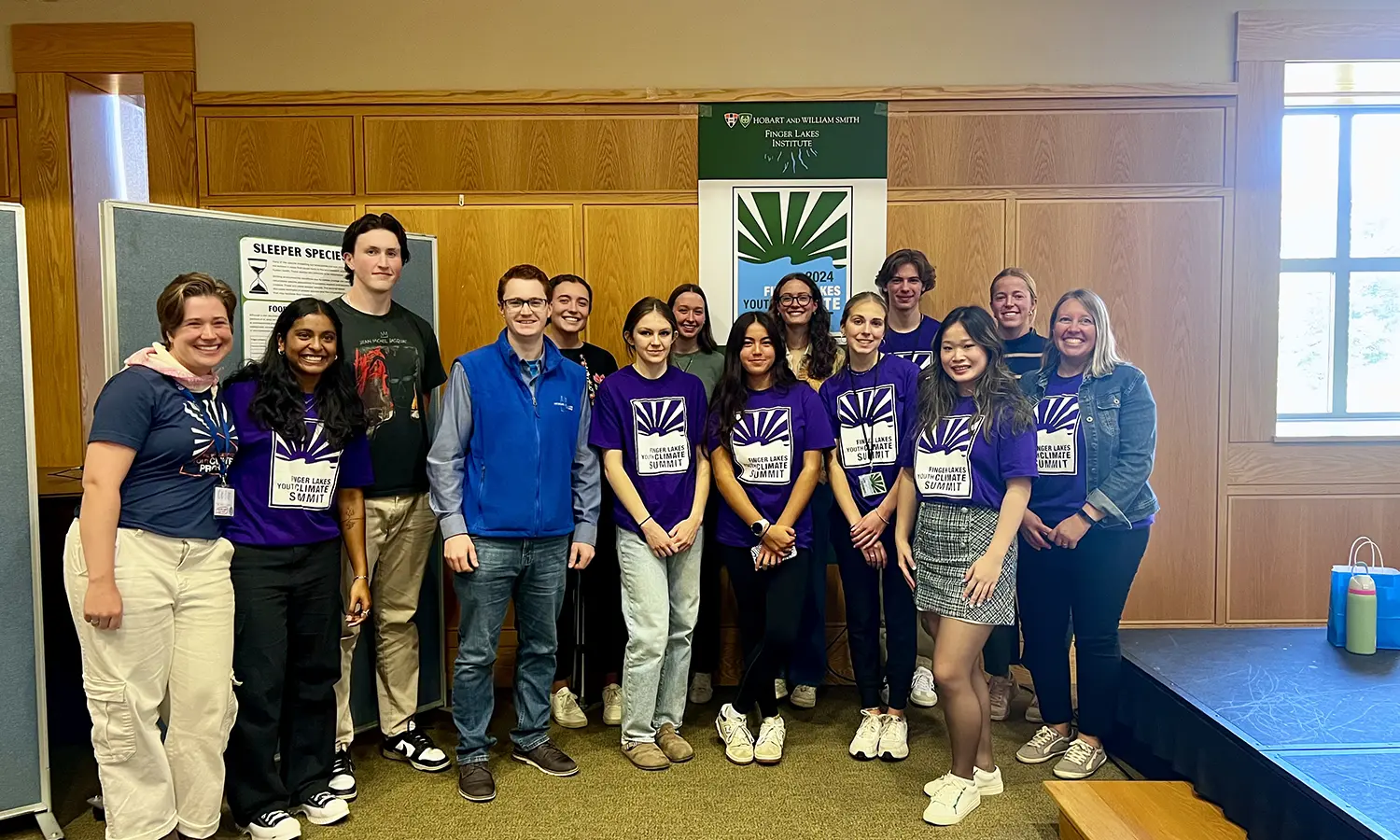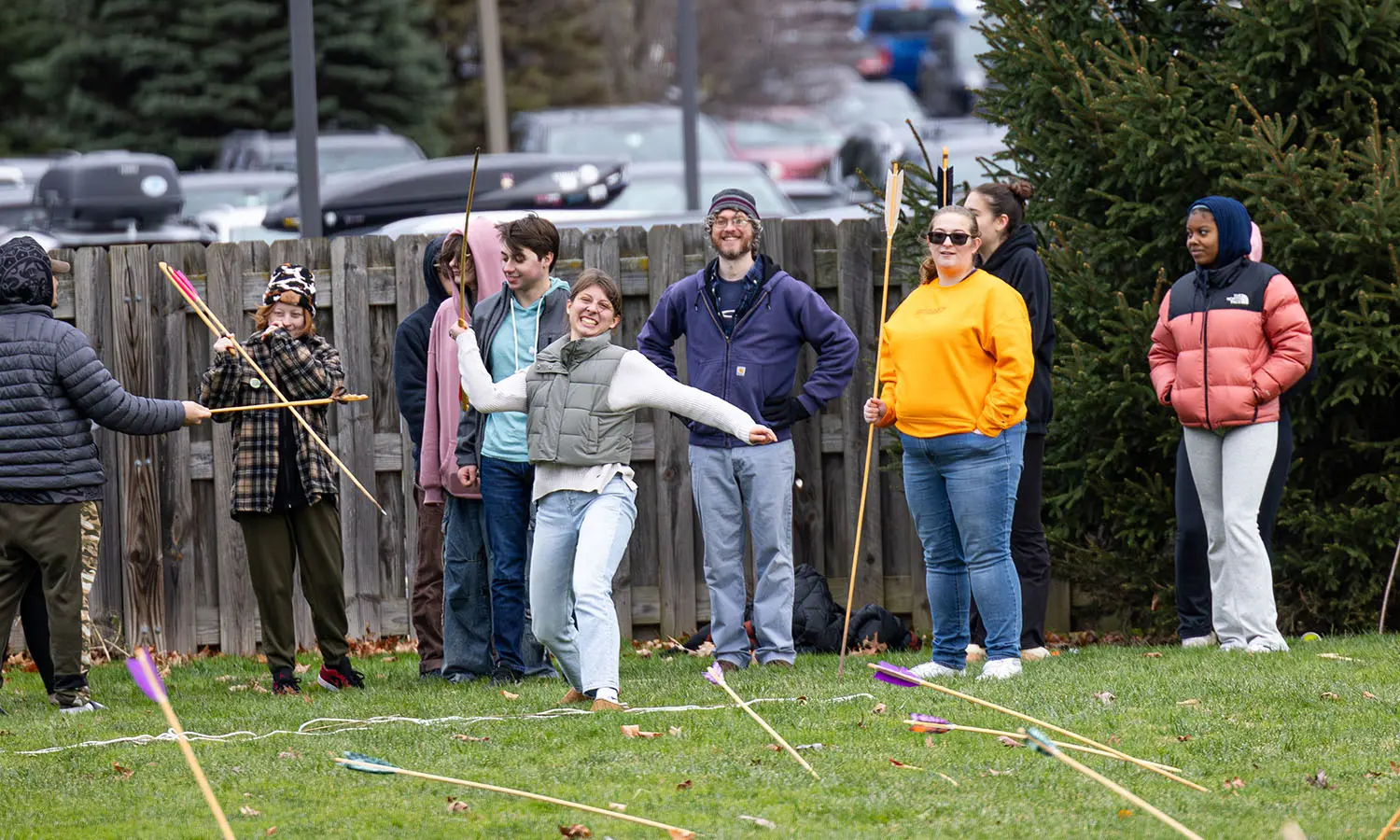
HWS News
9 July 2024 • Research • STEM Innovations in Drug Design
A deep appreciation of scientific collaboration emerges as Professor of Chemistry Justin Miller and summer research students generate potential pharmaceutical compounds.

Working side by side, students in Professor of Chemistry Justin Miller's research group develop enhanced techniques for synthesizing proteins and other molecules with possible pharmaceutical applications.
This summer, Maryfei Berrigan '27, Mackenzie Eldridge '25, Aspen Suwyn '25 and Leah Wiebe '27 are building up stores for the lab's projects, including potential anticancer compounds, and through the project are developing a deeper understanding of the scientific process.
"It's one thing to understand a concept on paper, but another to put that concept into practice when faced with the nuances of lab work," Wiebe says. "I've learned that much of research science involves leveraging one's knowledge of chemistry and applying it in physical situations, which requires that one not only understands what is going on chemically, but that one understands it enough to make informed decisions about next steps in the lab.”
The new synthetic methodology developed in the Miller laboratory has produced a class of molecules that inhibit histone deacetylase (HDAC), modulating the expression of genes linked to certain cancers. For Eldridge, it was the opportunity to better understand HDAC inhibitors that attracted her to the Miller Lab, as well as the chance to refine her lab skills and put her organic chemistry knowledge into practice.
"During the summer, we spent a decent amount of time in Professor Miller's office where we talked about fundamental concepts like pressure and how that relates to certain pieces of equipment that we use in the lab," Eldridge says. "We also spent time drawing out reaction mechanisms on the board and seeing why we added reagents in a certain matter."
Working through the rationale alongside the synthesis itself "helped to clarify and refresh many theoretical concepts learned in the classroom while also being able to practice hand skills in the lab," she says.
Wiebe adds that the summer research "has made me aware of the importance of persistence and meticulousness when working in the lab. When things didn’t go as planned, which seemed to happen more often than not, it was essential to keep going and keep trying out new potential solutions, because that was the route, however indirect, to forward progress."
Resilience, and a meticulous attention to detail, "meant that careful work was rewarded by higher yields and a better understanding of the process," she says.
Pictured above, Aspen Suwyn '25 and Mackenzie Eldridge '25 work in the lab while conducting their summer research.



